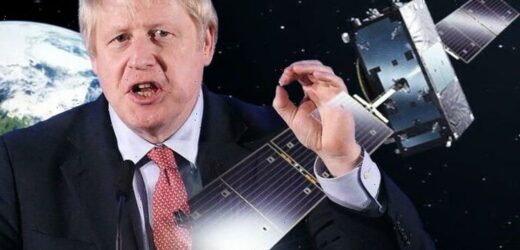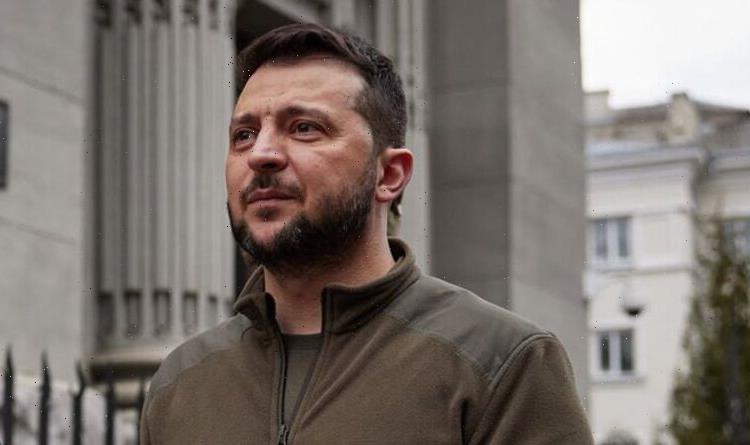Galileo: David Morris outlines UK’s role in project
We use your sign-up to provide content in ways you’ve consented to and to improve our understanding of you. This may include adverts from us and 3rd parties based on our understanding. You can unsubscribe at any time. More info
Since Britain was kicked out of the Galileo project following Brexit, the country has been looking for an alternative satellite tracking and positioning system. After its departure from the EU, the bloc labelled Britain as a “third country”, barring UK companies from participating in Galileo as it is viewed as a security programme that only the 27 member-states can take part in.
However, a space expert has warned the Government that the lack of an alternative threatens to put critical infrastructure at risk.
Submitting evidence to ministers, former satellite position, navigation and time-dependant (PNT) Strategy Technical Lead in Cabinet Office, Andy Proctor, currently Director of Rethink PNT, a consultancy firm wrote: “Our critical infrastructure is at risk from the loss of PNT, space-based or otherwise.
“We are currently critically dependent upon GPS; the loss of which will have a major impact in capability and economically.
“HMG disinvested in the eLoran terrestrial system that could have provided a backup, although this is slowly reversing.


“For 20 or so years there have been calls for action, yet the current status of inaction regarding the PNT strategy puts our systems at increasing risk, especially given the clear and present electronic warfare systems being used in Europe today. “
The UK being kicked out of Galileo led to many small satellite companies in Britain leaving so they could still be involved with the EU programme.
After Brexit, the UK launched the Global Navigation Satellite System (GNSS) research programme, of which Andy Proctor was the Technical Director.
However, when the UK GNSS programme shifted to the Space Based PNT Programme (SBPP), Mr Proctor left the government, arguing that the success of the £92 million GNSS programme “seems to have been supressed” inside Government.

Following the Brexit, the Government issued a £92 million budget to develop a Medium Earth Orbit (MEO) satellite that was similar to GPS and Galileo.
As head of the programme, Mr Proctor said: “It was immediately obvious that the civil service governance environment created around the programme was hostile towards it with contracts for industry deliberately delayed.”
Experts have previously warned about the “vital importance” of improving the UK’s PNT services.
A report from the Government Office for Science warned about the dangers of GNSS being knocked by, for example, extreme space weather phenomena.
DON’T MISS:
Solar storm: Blackout risk as NASA wants of ‘direct hit’ on Earth [REVEAL]
Japan humiliates EU with blueprint to cut Russia ties [REPORT]
Solar storm warning: ‘Radiation risk’ as ‘major’ event rocks Earth [INSIGHT]


GNSS tools are critical for national security and maritime safety, as well as for sat-nav technology.
But all satellite technology and spacecraft are particularly susceptible to solar storms and radiation that can fry electronics and disrupt communications.
According to Tim Guy, who is in charge of the UK Space Agency’s SBPNTP, the economic impact of the UK suffering a GNSS outage could cost the Government up to £1.7billion every single day.
Source: Read Full Article


